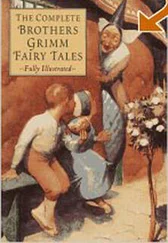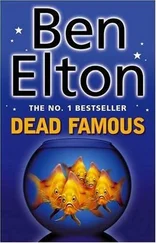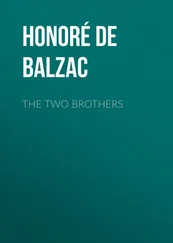‘Of course he wasn’t,’ Peter Lorre replied, and now the sneer was unmistakable. ‘None of them were Nazis, were they? Or so they all claim now . And the Waffen SS wasn’t really proper SS anyway, was it? They never ran the camps. You can’t blame them .’
‘My brother was married to a Jew,’ Stone said.
‘Yes, we know. Dagmar Stengel, née Fischer. You are travelling to Berlin to meet her. Is that not the case?’
Stone stared at the cups and saucers once more. He didn’t like telling them his business, but it was clearly a rhetorical question and he didn’t want to be caught in a lie.
‘Yes. Dagmar Fischer,’ he admitted.
‘Dagmar Stengel.’
‘I knew her as Dagmar Fischer. She married my brother after I left Germany.’
‘When did you last see Mrs Stengel?’
Stone drew deeply on his cigarette and closed his eyes. How often had he relived that moment? The whistling and shunting of the trains. The smell of her hair. The martial music on the loudspeakers that made it so hard to whisper the things he needed to say.
‘In 1939,’ he answered.
‘In Berlin?’
‘Yes. In Berlin.’
‘And after the war? Did you try to find her?’
‘Of course. I tried to find all my family.’
‘You were in Germany?’
‘Yes. With the army. I worked in the Displaced Persons camps, with the UN Relief and Rehabilitation Administration. You know all this, it’s in my records.’
‘So,’ Peter Lorre observed through a mouth filled with biscuit, ‘well placed to look for an elusive Jewess?’
Elusive Jewess. Such a phrase. The little man clearly had no idea of the casual contempt and innate suspicion contained within it. ‘An elusive Jewess ?’ Stone repeated. ‘What the hell do you mean by that?’
‘I mean Frau Stengel of course.’
‘Then bloody well say so.’
There was a moment’s silence.
‘Frau Stengel then?’ Lorre resumed. ‘You didn’t find her?’
‘No.’
‘What happened to her?’
‘I never found out.’
‘One more anonymous victim of the Holocaust?’
‘I presumed so.’
‘But you now think she survived?’
Stone paused for a moment, considering his reply.
‘I have recently allowed myself to hope that she did.’
‘And why would that be?’
Stone was trying very hard not to become angry. Getting angry never helped. Not with the sort of people who sat behind green hessian-covered tables with cups of tea and empty yellow notepads.
‘What is this about?’ Stone asked. ‘I don’t understand why you want to know, or why I should tell you for that matter.’
‘It’s very simple,’ the plump man replied, breaking a second biscuit in two and taking the larger half. ‘If you cooperate with us you’ll soon be on your way. If you don’t, then there’s any amount of red tape we can tie you up with pretty much indefinitely. You might not get to Berlin until the year 2000, by which time you will be a very old man and Berlin will long since have been reduced to a pile of smouldering radioactive rubble. So just be a sensible chap and answer our questions. Why do you now hope that Dagmar Stengel is alive?’
Stone shrugged. The supercilious little swine knew anyway.
‘Because she contacted me.’
‘Out of the blue?’
‘Yes. Out of the blue.’
‘After seventeen years?’
‘That’s right.’
‘And you’re sure it was Frau Stengel?’
That was the rub. He was sure. He was absolutely sure. The writing, the tone, and the memories the note contained. And yet…
‘She said she’d survived most of the war in Berlin as what they called a “submarine”,’ Stone replied, avoiding Lorre’s question. ‘But the Gestapo picked her up in June ’44 and shipped her to Birkenau. It seems she escaped.’
‘A rare feat indeed.’
‘Such things happened, rarely, but they happened. She says she got out during the Sonderkommando revolt at Crematorium IV and saw out the war fighting with Polish Partisans. After that, the Soviets put her back in a camp along with the rest of the surviving Polish resistance.’
‘Quite a story.’
But not impossible. Dagmar had been tough and resourceful for all her refined manners.
‘I can see you found it hard to credit,’ the plump man said, looking steadily at Stone. ‘Not surprising, after so long. However, I am here to tell you that the story is true. Or at least its conclusion is. Dagmar Stengel is alive and well and living in East Berlin.’
The surge of joy he felt was like the sudden, heady rush that sometimes overtook him in his dreams. When it was he and not his brother on the beach at Wannsee entwined in Dagmar Fischer’s rain-dappled arms.
‘How do you know?’ Stone asked, trying to keep his voice from shaking.
‘We know lots of things.’
Stone banged the table with his fist. The cups rattled. The ancient telephone receiver jumped in its cradle. This was his business, not theirs. His family. His life. How dare they act as if it was some game!
‘How do you know!’ he demanded. ‘Tell me!’
‘Sources,’ the plump man replied, ignoring Stone’s passion and idly succumbing to the other half of his second biscuit, ‘ confidential sources.’
‘Are you MI6?’
‘MI6 does not exist, Mr Stengel.’
‘Stone! My name is Stone. It’s been Stone for fifteen bloody years!’
‘Yes, you changed it, didn’t you?’
Again a tiny sneer. This time not for the German who claimed not to have been a Nazi but for the sneaky Jew who had changed his name to hide his Jewey-ness. That was the Brits, they liked it both ways. Just because they’d saved the world for decency and fair play didn’t mean the bloody Yids could start getting above themselves.
‘I changed my name,’ Stone snapped, ‘because the army advised me to. The British army. If I’d been taken in action and they’d found out I was Jewish, I’d have been gassed.’
‘All right. Keep your shirt on,’ the little man said with a patronizing smirk. ‘We knew that.’
‘You know a bloody lot.’
‘We try to.’
‘Because you’re MI6,’ Stone said. ‘The Secret Service.’
‘Can’t tell you that, can we, Mr Stone? Then it wouldn’t be secret.’
Peter Lorre smiled and wiped his mouth, clearly pleased with his little joke.
Stone should have guessed it from the start. Just the layout of the room was proof enough. Bare, save for a table, tea, biscuits, paper and a phone. Not a book, not a pamphlet, not a memo. No chart on the wall, no wastepaper bin under the table, not even a paperclip. What normal office was ever like that? Even the police had posters on their walls.
And then there was the double act. The chatty one, the silent one. Classic, of course. Such a cliché. He really should have guessed. They were spooks all right.
And they said Dagmar was definitely alive.
Once more the surge of joy.
She’d survived. Berlin. The camps. The gulags. She’d survived them all.
And through all that dreadful darkness she had remembered him. He who had loved her.
He who still loved her.
Who would always love her.
IT TURNED OUT that Frieda was right, she was carrying two boys, but the labour was long and difficult and only one of them survived it, the other choked on a twisted cord.
‘I’m sorry, Frau Stengel,’ the doctor said. ‘The second child is stillborn.’
Then they left her alone.
Not out of any sense of delicacy but simply because the hospital was so busy. Four years of war, followed by the spitting, spluttering dud of a ‘revolution’, had left nobody with much time for niceties, particularly the medical profession. Frieda, who had not herself suffered any complications during the birth, was aware that they would be wanting her little bare yellow-painted room back. She did not have much time.
Читать дальше












